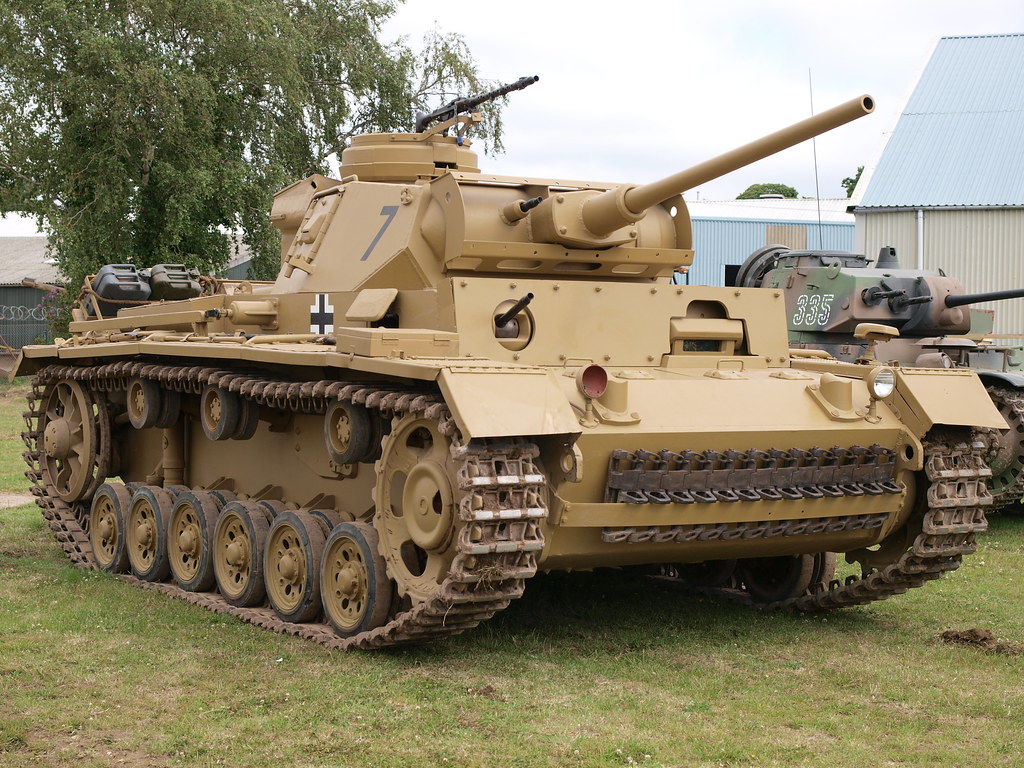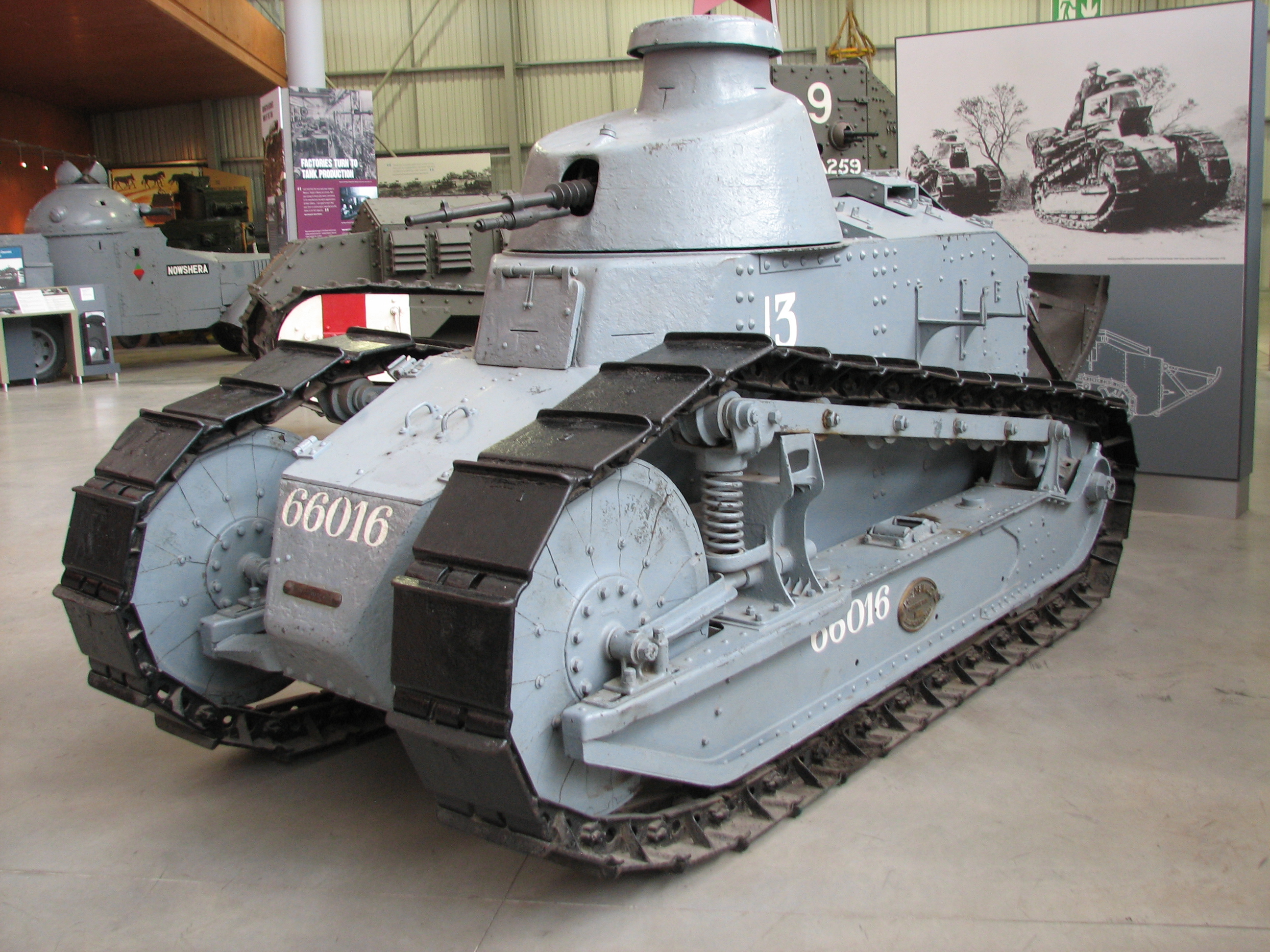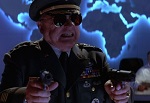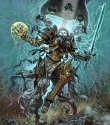|
FAUXTON posted:So he minted coins from silver which were similar enough to Venetian coins to pass muster under the metallic money standard of the day, but since the minting wasn't OK'd by the Venetian wiseguys they considered them counterfeit? According to what I've read in Felix Martin and David Graeber, there was not normally such a thing as pure bullion money in the Middle Ages. Money in the European Middle Ages pretty much always circulated at a premium to its bullion value (and obviously couldn't circulate at a discount, or people would melt it down). The bullion content offered a base line value, but the premium was there because the state set some prices, including taxes, and the face value of the coin made it useful to pay those prices/taxes. So Medieval money was always to some extent "fiat money".
|
|
|
|

|
| # ? May 19, 2024 10:40 |
|
nothing to seehere posted:Do they still mine gold in Serbia? I know in EU4 (accurate historical facts here) Serbia has a gold mine, but whats the history behind that? And sitting on a gold mine sounds like it would give you huge regional power: did it? There's not really much of it left after everyone and their mother rushed to dig it up for all these centuries. The Bor mining complex still has an estimated 200 tons of gold and 1500 tons of silver left to dig out, but that's about it, I think. A lot of the remaining mineral wealth is on Kosovo, and Wesley Clarke's company has been steadily taking control of most of mining deposits over there, so it's just more cash for USA at this point. Gold and silver mines were absolutely a major source of strength for medieval Serbia. For example, Novo Brdo, the fortress-town Konstantin Mihailović (guy who wrote "Memoirs of a Jannissary") was from, mined something like 6 tons of silver every year before it was captured by the Ottomans. A lot of expert Saxon miners were being brought over to Serbia to speed up the mining process. The Serbian Empire was so ludicrously rich that under Emperor Dušan that it could afford hiring German heavy cavalry as mercenaries on a full-time job, almost like a standing army of sorts. Until he suddenly keeled over and died (an estimate of his height is 215cm, it's possible that he had heart issues. Or was just poisoned, that's always an option too') his army would conquer mostly by showing up somewhere and asking "Are we going to have to do this the hard way?"
|
|
|
|
Graeber is a terrible historian, IIRC. Take whatever he says with a massive grain of salt.
|
|
|
|
Fangz posted:Graeber is a terrible historian, IIRC. Take whatever he says with a massive grain of salt. Yeah, that's pretty true, but his books have rewarded footnote diving in the past. When I have the time I've been meaning to read his sources for the medieval economy chapters in Debt. I can't remember the name, but the main work he cites is one I've heard good things about.
|
|
|
|
Is there a list of crazies/old/debunked historians and books we should avoid?
|
|
|
|
|
What about crazies that make a really entertaining read?
|
|
|
|
Reading the old/crazy/debunked can still be useful and informative if you go in with open eyes and a sense of where it fits in the historiography of the subject.
|
|
|
P-Mack posted:Reading the old/crazy/debunked can still be useful and informative if you go in with open eyes and a sense of where it fits in the historiography of the subject. That is true, but what if you know about incidents like that terrible US Civil War historian that got publically dumped by HEY GAL's friend and can't keep a straight face trying to read the stuff?
|
|
|
|
|
SeanBeansShako posted:Is there a list of crazies/old/debunked historians and books we should avoid? Daniel Goldhagen is the big one I always warn people about. Then there are the obvious nutters like David Irving, but at that point you're talking about a guy who went to court in Europe over being a holocaust denier.
|
|
|
|
Oh the whole thing with David Irving always comes to mind when it comes to crazies.
|
|
|
|
|
SeanBeansShako posted:Is there a list of crazies/old/debunked historians and books we should avoid? Suvorov/Rezun, literally everything he wrote is kind of "wink wink nudge nudge" scholarship where he just kind of bring up a lot of semi-relevant and sort of correct facts and then goes "eh? eh? isn't that weird?" to prove his point. There's literally a book (Antisuvorov) written that goes step by step through Icebreaker and explains why every claim he makes is bullshit.
|
|
|
|
Ensign Expendable posted:Suvorov/Rezun, literally everything he wrote is kind of "wink wink nudge nudge" scholarship where he just kind of bring up a lot of semi-relevant and sort of correct facts and then goes "eh? eh? isn't that weird?" to prove his point. There's literally a book (Antisuvorov) written that goes step by step through Icebreaker and explains why every claim he makes is bullshit. Hahaha, for shits and giggles I decided to check out the Wiki page for Icebreaker, and an anonymous user cut out the entire section calling the book out as discredited with the edit reason "Removed biased and unscientific assumption and misrepresentation and hypothesis" Wikipedia really is a true gem.
|
|
|
|
Gavin Menzies
|
|
|
|
I've heard a lot of bad things about Tom Holland on these forums even though I really liked his books
|
|
|
|
Does anyone have thoughts on this syllabus? https://shashankjoshi.files.wordpress.com/2009/12/origins-of-modern-war-syllabus.pdf If I've done it, what would be natural next steps to build on it?
|
|
|
|
Kanine posted:is siege of jadotville on netflix any good? it seems interesting since it involves un peacekeepers in a relatively obscure conflict It's good. I was gonna ask about other wars that went on around the time of Vietnam, because that looms large and that Congo thing was interesting. Deteriorata posted:It's interesting that a site in Turkey suggests becoming stationary came first. A tribe found a particular "magic" place that had good food resources available all year round. They seem to have developed a fairly large settlement based entirely on hunting and gathering, and deliberately planting seeds became a way of being able to stabilize their food supply and stay put. Are you talking about Göbekli Tepe or some other site? Because that it not what I read at all. E Göbekli Tepe was a seasonally inhabited place where several tribes congregated to build a temple. This was pre agricultural and theories are that agriculture becaume the solution to the problem of feeding a bunch of people in one remote place for extended periods of time. To look at the agricultural revolution in a more recent lens look at how the industrial revolution began slowly with an invention here and an invention there until it snowballed into the poo poo that scared the pants off of J.R.R. Tolkien. https://en.wikipedia.org/wiki/G%C3%B6bekli_Tepe DiHK fucked around with this message at 06:35 on Dec 8, 2016 |
|
|
|
SlothfulCobra posted:Societies can be inconsistent about dehumanization too. During colonization, there were a lot of people who sympathized with the native americans despite the normal policy of dehumanization, and it was the same with slavery. A remarkable number of British officers in New Zealand saw Maori as, simultaneously: * basically just primitive Europeans who would scrub up into model citizens within a decade; * a noble, warlike people, primitive but fundamentally decent and loyal; * subhuman; * decent enough but doomed to extinction by the fatal impact of contact with Europeans; and * basically Adam before the Apple. It's a remarkable level of dissonance.
|
|
|
|
DiHK posted:It's good. I was gonna ask about other wars that went on around the time of Vietnam, because that looms large and that Congo thing was interesting. No, I remembered reading about Hallan Çemi (I had to do some research to dig up the name). It dates back 11,000 years and consisted of multiple mud-brick dwellings. The were closely interconnected and represented a fairly large-sized permanent living site with some fairly sophisticated urban organization. They were also completely pre-agriculture. There is evidence of the domestication of sheep and pigs, but no cereal grasses. quote:Animal hone and plant remains recovered from Hallan Çemi show that the inhabitants made their living almost completely from wild resources. This is a pattern that has been well attested throughout southwest Asia and of itself is not surprising. The big surprise was the absence of any wild cereals. Instead, bitter vetch, wild lentils, seeds from Gundelia (a spiny plant), almonds, and pistachios were the staples. There's more sites being discovered in the area that will shed more light on this entire society that seemed to be on the edge of settling down and building cities, but hadn't started doing any noticeable agriculture yet.
|
|
|
|
Nude Bog Lurker posted:A remarkable number of British officers in New Zealand saw Maori as, simultaneously: Do you know any memoirs or writings from colonial officers in NZ? I'd love to hear more about the interaction of the Maori and British settlers, it's probably the last corner of the empire on my grand world trip of 18th and 19th century gentleman officer memoirs.
|
|
|
|
SeanBeansShako posted:Is there a list of crazies/old/debunked historians and books we should avoid? A World Lit Only by Fire, by William Manchester, springs to mind. edit: I still think David Graeber is well worth reading by the way. Mr Enderby fucked around with this message at 11:54 on Dec 8, 2016 |
|
|
|
DiHK posted:It's good. I was gonna ask about other wars that went on around the time of Vietnam, because that looms large and that Congo thing was interesting. There's a book called "Small Wars, Far Away Places: The Genesis of the Modern World 1945-65" by Michael Burleigh that I'd recommend. It's basically an overview of a whole host of independence struggles and conflicts around this time, with a good overview of the actors involved, the personalities, the historical backgrounds etc. It covers the Congo, Indochina, Iran, Cuba, the Suez Crisis, Algeria, Malaya, Hungary and many other places.
|
|
|
|
SeanBeansShako posted:Is there a list of crazies/old/debunked historians and books we should avoid? Death Traps
|
|
|
|
Mr Enderby posted:A World Lit Only by Fire, by William Manchester, springs to mind. Why did you remind me of this, you son of a bitch. One of the key tasks of medieval military history from the 50s to the 90s was debunking Charles Oman, so that's one. Winston Churchill is also terrible. I think Stephen Morillo is a pretty crappy scholar.
|
|
|
Deteriorata posted:No, I remembered reading about Hallan Çemi (I had to do some research to dig up the name). Have they proven that no agriculture was done or is it possible that they were growing the lentils and other plants?
|
|
|
|
|
Fusion Restaurant posted:Does anyone have thoughts on this syllabus? https://shashankjoshi.files.wordpress.com/2009/12/origins-of-modern-war-syllabus.pdf What, exactly, are your goals for it? What level of class is it going to be for? I mean, it looks like a fine upper division syllabus, but I really don't know what you mean by "building" on it.
|
|
|
|
Fusion Restaurant posted:Does anyone have thoughts on this syllabus? https://shashankjoshi.files.wordpress.com/2009/12/origins-of-modern-war-syllabus.pdf So there's a part labeled "The Future of War" and it doesn't mention drones? Seems kind of weak, imho Edit: If you can read German, Medienkriege : Menschliche Faktoren strategischen Scheiterns / von Hans-Joachim Ruff-Stahl is a book from 2012 and a bit more closer to today than some of those ancient books in section VII. But probably you don't, so here are some more books to expand the weakest part of the syllabus: - Scales on War : The Future of America's Military at Risk / Scales, Bob / 2016 - Cassandra in Oz : Counterinsurgency and Future War / Crane, Conrad C. /2016 - Just ordinary robots : automation from love to war / Lambčr Royakkers, Rinie van Est / 2015/2016 - A Theory of the Drone / Chamayou, Grégoire / 2015 - Drones and Targeted Killing : Legal, Moral, and Geopolitical Issues / Cohn, Marjorie / 2014 Libluini fucked around with this message at 14:09 on Dec 8, 2016 |
|
|
|
Rodrigo Diaz posted:Why did you remind me of this, you son of a bitch. Churchill becomes so terrible that it's interesting solely as a historical source of what Churchill thought about much much later, in the light of making himself look as good as possible. Pretty fascinating.
|
|
|
|
I think generally speaking it's less useful to talk about who is/isn't terrible than it is to understand where the biases of the writer in question come from, and so where they are trying to go with a particular work.
|
|
|
|
Well, Maoris nearly killed themselves out when they had a chance, shich is a fairly European thing to do.
|
|
|
|
Fangz posted:I think generally speaking it's less useful to talk about who is/isn't terrible than it is to understand where the biases of the writer in question come from, and so where they are trying to go with a particular work. I read Irving's Hitler's War and it was interesting in lots of ways. Wouldn't pay money for it tho but.
|
|
|
|
I have always wondered but never bothered to ask but why do old tanks look like they were made from clay and painted over? I don't know if its an age thing or a restoration thing or if its from the process of how they manipulated and shaped the metal but I have never seen it (or I guess noticed it) on modern American armored vehicles but just about every old tank I have seen either in an Armor museum or on a concrete pad on display seems to have that look.  I assume it has to do with how they made rounded surfaces but I really have no idea and its something I have been curious about for over a decade.
|
|
|
|
Thats from the casting process. Germans used rolled plates and welded them together, Soviets used a sand mold to cast with and the rough surface is from the uneveness of the mold.
|
|
|
|
I'd really recommend Richard Evans' book about the Irving trial (Telling Lies about Hitler). Evans was an expert witness of the trial and the book goes into detail about the various lies, half truths and exaggerations that Irving's works contained. The Amazon reviews are also hilarious for butthurt fash giving one star 'reviews'.
|
|
|
|
EX250 Type R posted:I have always wondered but never bothered to ask but why do old tanks look like they were made from clay and painted over? I don't know if its an age thing or a restoration thing or if its from the process of how they manipulated and shaped the metal but I have never seen it (or I guess noticed it) on modern American armored vehicles but just about every old tank I have seen either in an Armor museum or on a concrete pad on display seems to have that look. Saint Celestine posted:Thats from the casting process. Germans used rolled plates and welded them together, Soviets used a sand mold to cast with and the rough surface is from the uneveness of the mold.  Cast  Welded  Cast and Riveted
|
|
|
|
lenoon posted:Churchill becomes so terrible that it's interesting solely as a historical source of what Churchill thought about much much later, in the light of making himself look as good as possible. Pretty fascinating. Youse guys are talking about "A history of the English-speaking peoples," correct? Or is Churchill just in the "avoid" column altogether? I listened to an audiobook of one of Churchill's volumes on World War 2 and thought it was pretty interesting. e: Nude Bog Lurker posted:A remarkable number of British officers in New Zealand saw Maori as, simultaneously: Ah, hm. Wow. I have to ask because I'm fascinated: how the heck did they manage this level of dissonance? Nebakenezzer fucked around with this message at 17:07 on Dec 8, 2016 |
|
|
|
EX250 Type R posted:I have always wondered but never bothered to ask but why do old tanks look like they were made from clay and painted over? I don't know if its an age thing or a restoration thing or if its from the process of how they manipulated and shaped the metal but I have never seen it (or I guess noticed it) on modern American armored vehicles but just about every old tank I have seen either in an Armor museum or on a concrete pad on display seems to have that look. Like people said, it's cast armour. In order to make curved surfaces, you either roll a plate and bend it or cast the shape. Cast armour is a little weaker than rolled, but a hell of a lot easier to produce, plus you can do clever tricks like variable thickness that results in equivalent protection to a much heavier tank armoured only with uniform thickness rolled steel. The texture of the casting comes from the coarseness of the sand. If you look at something like Czech T-34s, the turret is almost completely smooth, even though the armour is still cast. Obviously during the war, cosmetic finish was not a priority, so the results are a bit cruder.
|
|
|
JcDent posted:Well, Maoris nearly killed themselves out when they had a chance, shich is a fairly European thing to do. That description of what the British officers thought of them is hilarious because well, that is what I sort of think of the Imperial era British.
|
|
|
|
|
Saint Celestine posted:Thats from the casting process. Germans used rolled plates and welded them together, Soviets used a sand mold to cast with and the rough surface is from the uneveness of the mold. Also the Germans at some point took to literally plastering their tanks to counter non-existent magnetic mines. Which is why late German tanks look like they're made out of plasterboard.  Personally I think they would have gotten more use out of painting woad on them. OwlFancier fucked around with this message at 17:59 on Dec 8, 2016 |
|
|
|
It was good for wasting time and being expensive though! And in the end anything that bloated the decaying breaking down nazi war machine is always good.
|
|
|
|
|

|
| # ? May 19, 2024 10:40 |
|
Mr Enderby posted:A World Lit Only by Fire, by William Manchester, springs to mind. Can you give more detail on this? I read it recently and had a vague memory of hearing that it was inaccurate.
|
|
|



































